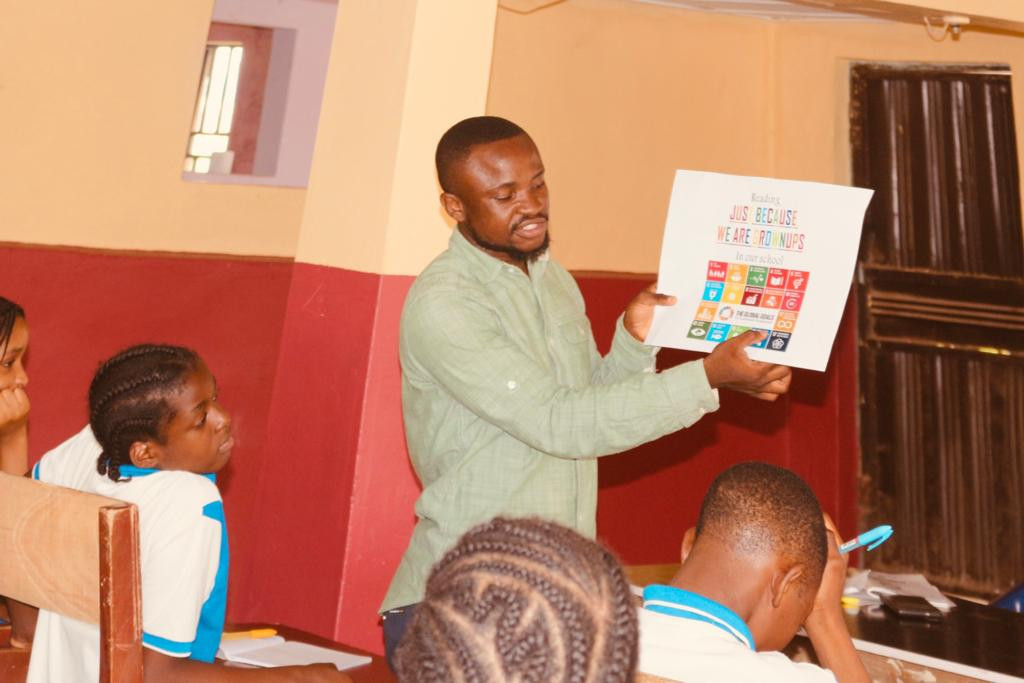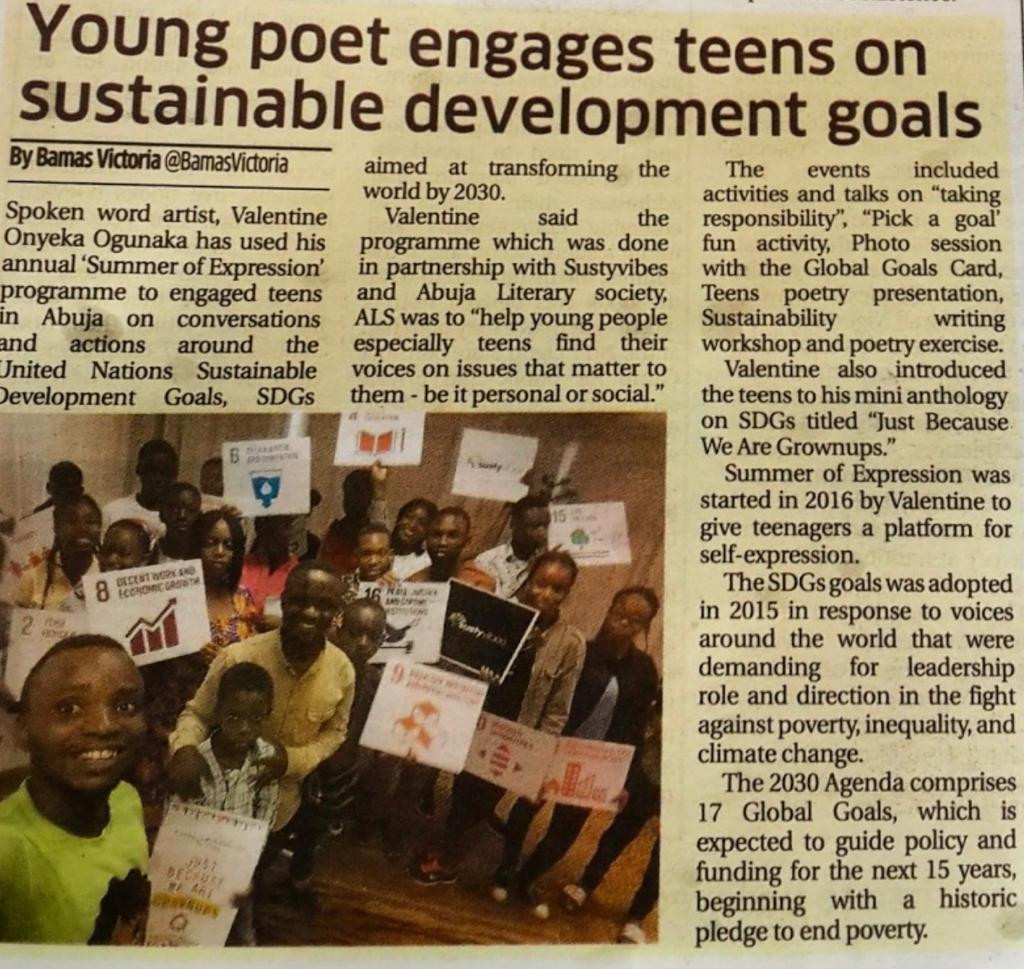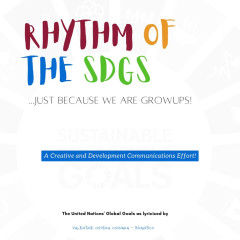Valentine Onyeka Ogunaka's book, "Rhythm of the SDGs," stands out as a captivating and profound contribution to the human rights advocacy narrative. This poetic masterpiece elegantly intertwines with the rhythm of social change, providing an insightful glimpse into the crucial Goal 16 of the United Nations' 17 Sustainable Development Goals (SDGs). The book skillfully captures the essence of peace, justice, and strong institutions, illuminating their pivotal role in fostering sustainable development and safeguarding human rights.
Ogunaka fearlessly delves into societal struggles, addressing violence, rape, and human trafficking through artful stanzas. The poet's powerful words urge us to confront and eradicate injustice, promoting a call for action and accountability. Their evocative language draws attention to the raw realities endured by countless individuals, emphasizing the necessity for strong institutions and the rule of law to protect human rights.
Ogunaka's poem emphasizes the vital link between peace and justice in advocacy. Lasting change and progress can only thrive in a peaceful and stable environment. Peace, as the poet suggests, is not just the absence of conflict but the presence of respect for human rights and dignity. The call to build peace everywhere aligns with the heart of advocacy. Strong institutions and the rule of law become beacons of hope in putting an end to atrocities.
The poet delves into corruption, bribery, and governance issues, shedding light on the challenges faced by human rights advocates in their pursuit of justice. Transparent and accountable institutions are essential for effective human rights protection, and Ogunaka skillfully exposes the dark shadows of corruption and bribery that loom over governance. However, amidst these challenges, the poet offers hope in the submission that "We can fix this!"
Ogunaka's poem envisions a symphony of collaboration among nations to combat terrorism and cyberbullying. The poet emphasizes the power of working together to silence the guns and foster kindness online. This resonates with the need for global cooperation in addressing these challenges, as they pose threats to vulnerable communities worldwide. International collaboration is crucial in tackling issues like terrorism, cyberbullying, and the flow of arms, safeguarding the safety and well-being of people everywhere.
The poet's emphasis on birth registration highlights the vital connection between human rights and access to basic services. Birth registration is essential in providing individuals with legal identity, rights, and protection right from the beginning of their lives. It plays a crucial role in ensuring that everyone's rights are recognized and upheld.
Ogunaka's poetic representation of Goal No. 16 makes a poignant and thought-provoking contribution to the human rights advocacy narrative. The poem serves as a reminder of the challenges in advancing human rights and sustainable development, urging collective action to create a world where peace, justice, and strong institutions thrive.
To conclude, "Rhythm of the SDGs" is more than a book of poems; it's a rallying cry for dreamers and change-makers. It speaks directly to the youth, emphasizing the importance of their voices and actions in shaping a brighter future, and in the pursuit of a more just and rights-respecting world.








0 Comments